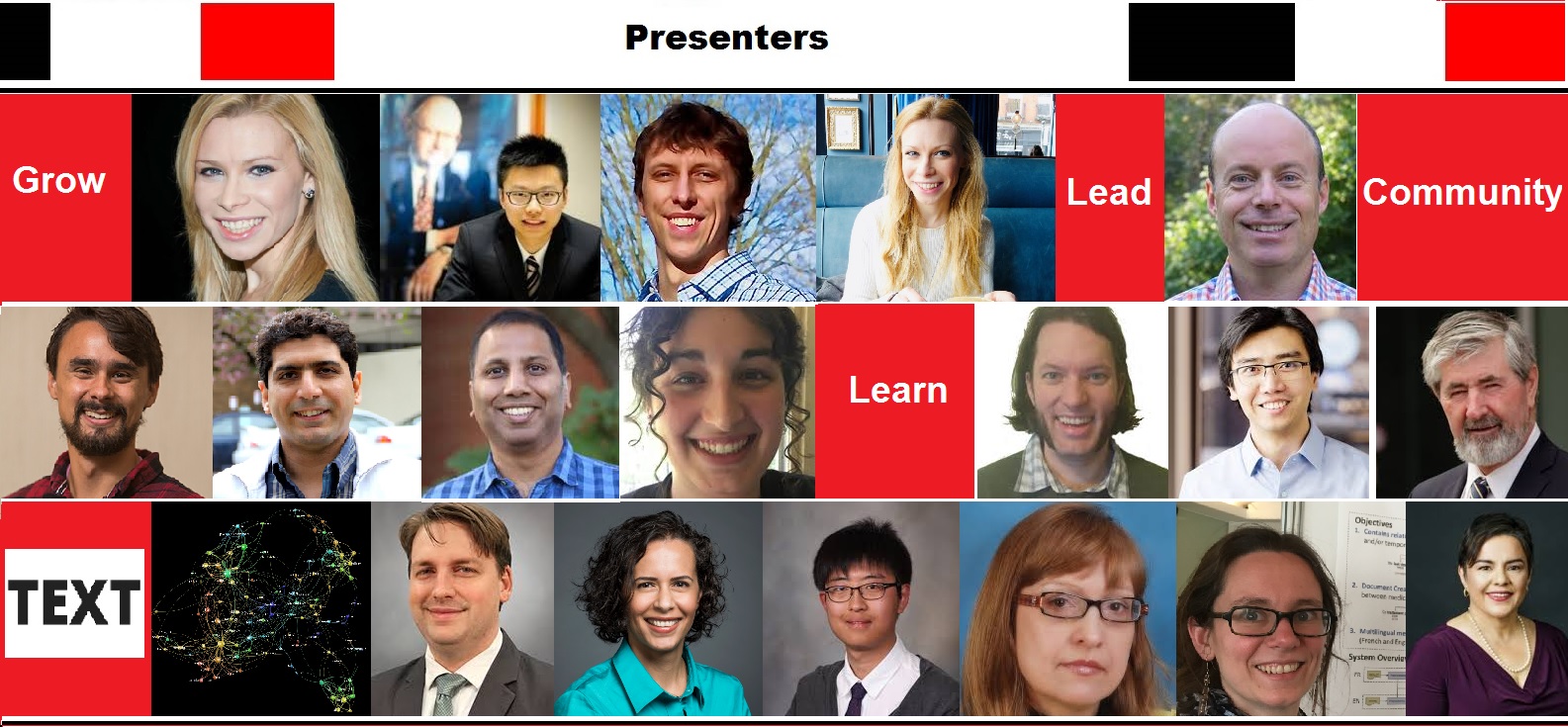
Welcome to the AMIA 2018
NLP working group pre-symposium
Graduate Student Consortium, Year-in-Review, and Community Shared Tasks
Nov 3, 2018, San Francisco
Download final program >here<
Introduction
The application of Natural Language Processing (NLP) in the general English domain has seen enormous progress over the past decades, progress that was enabled by the large availability of tools and resources that could be shared, reused, and improved in multiple projects and collaborations. Applying NLP to the textual content of patient electronic health records (i.e., clinical text) is constrained by strict patient privacy and confidentiality laws and regulations. These domain-specific peculiarities for access and sharing of resources (e.g., annotated text corpora) and tools (e.g., trained machine learning algorithms) require creative solutions. Despite these privacy restrictions, many research teams have succeeded in creating and then sharing resources based on clinical text in a thoughtful and sustainable manner. Despite the legal specifics surrounding patient data, NLP-based technologies have been permeating clinical and translational research. Our general objective with this pre-symposium is (1) to provide a platform for the next generation of biomedical NLP scientists to get focused feedback on their in-progress graduate work from a panel of senior academicians, (2) to demonstrate the latest achievements, resources and tools within the biomedical NLP community along with their reusability, portability, and interoperability.
Goals of the Pre-symposium
After participating in this event, attendees should be better able to:
- Implement constructive feedback on their graduate research efforts
- Stay current with the latest advancement in the field
- Be familiar with existing and available biomedical NLP tools, resources, and shared tasks
Final Program
The pre-symposium includes the graduate student consortium session (i.e., ‘doctoral’ consortium also open to Masters students), where students will present their work and get feedback from experienced researchers in the field, followed by highlight and poster session, where significant articles will be highlighted and discussed, and then practical implementation and testing of NLP tools for practical NLP tasks in a ‘hackathon’.
Graduate students consortium (8:30am-11:00am):
This session is chaired by Dr. Hongfang Liu. The expert panel includes Hongfang Liu, Pierre Zweigenbaum, Guergana Savova, Yuan Luo, Ozlem Uzuner, Jon Patrick, Kirk Roberts, and Stephane Meystre. Each presenter will prepare a 15min presentation followed by questions and constructive feedback from the expert panel about the following:
- Presentation (slides, speech clarity and rhythm)
- Significance (real problem, real people, and potential impact)
- Innovation (new or improved, in one field or broader)
- Approach (appropriate research design, methods used, and feasibility)
- Environment (adequate resources, supervisors/collaborators, guidance)
Emerging NLP Opportunities (11:00am-12:00pm):
This session is chaired by Jon Patrick. Each presenter will prepare a 12min presentation followed by 3 min for questions.
Year-in-Review/Highlight (1:30am-2:30pm):
This session is chaired by Ozlem Uzuner. Each presenter will prepare a 15min presentation followed by 5min for questions.
Community Challenges/Shared Tasks (3:00-4:30pm):
This session is chaired by Peter Elkin. The organizers of challenges/shared tasks will present various community challenges and shared tasks organized in the biomedical and clinical NLP domain.
Organization
|
|
Submission and Review
Submission deadline: July 31, 2018
Submission format: All submissions have a page limit of 2 pages using AMIA template
Submission guideline:
Poster: All researchers in the biomedical and clinical NLP fields are invited to submit applications for a poster of their research. Please follow AMIA poster format.
Graduate Student Consortium: Graduate students are invited to submit applications for a podium presentation of their graduate research work (in the biomedical and clinical NLP fields). The submission is suggested to include the following sections:
- Aims and Objectives - State the main objective(s) of your project.
- Justification for the Research Topic - Explain the motivations for your project.
- Research Questions - Stating your research question is essential. This might be done in a list.
- Research Methodology - If you already have plans for your research methodology, explain them here. If you have not found an appropriate methodology yet, or wonder which one to choose, this is also the place to mention it. In this case, list the requirements your methodology should fulfill.
- Research Results to Date - You are not required to have results. But if you already have some, present them here.
- References – Any citation.
Year-in-Review: All researchers in the biomedical and clinical NLP are invited to submit their significant paper or research projects. The submission is suggested to include the following sections:
- Overview of the paper or project – It can be an abstract or project overview.
- Justification of the Inclusion – Explain the relevance, interest, and value of the topic to NLP-WG and the impact of the paper(s) or efforts on informatics/medicine/biology.
Community Shared Tasks : The organizers and participants of NLP shared tasks in the biomedical domain to present the design, implementation, and results of these events. The session aims to provide a forum for the biomedical NLP community to be informed about the-state-of-the art approaches for the topics covered by the shared tasks.The organizers and participants of biomedical NLP shared tasks are encouraged to have their systems available for audiences to gain hands-on experience of using the systems. The following sections are suggested:
- Shared Task Description - Provide a description of the shared task.
- Summary/Outcome of the Shared Task or System - The ogranizers can provide a summary of the shared task and the participants can provide an overview of their systems.
- References - List bibliographic references in Vancouver format.
Submission method:

 TOP
TOP